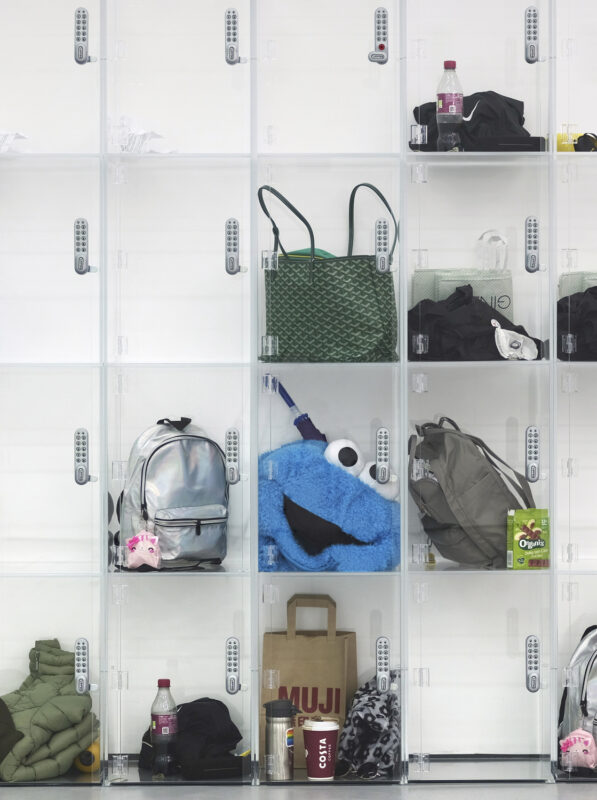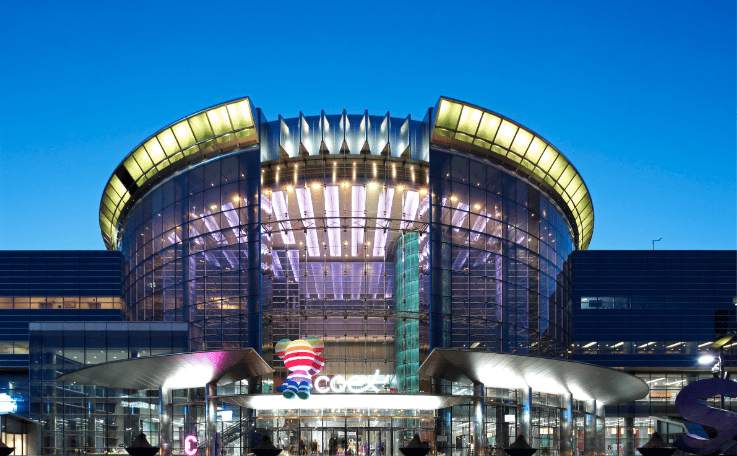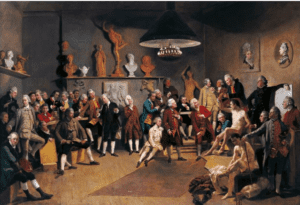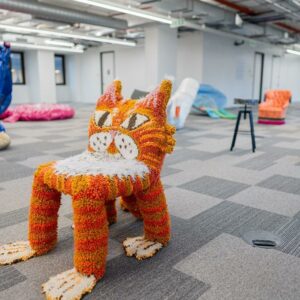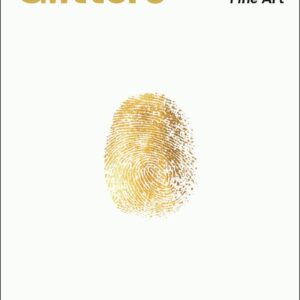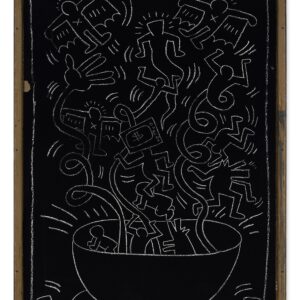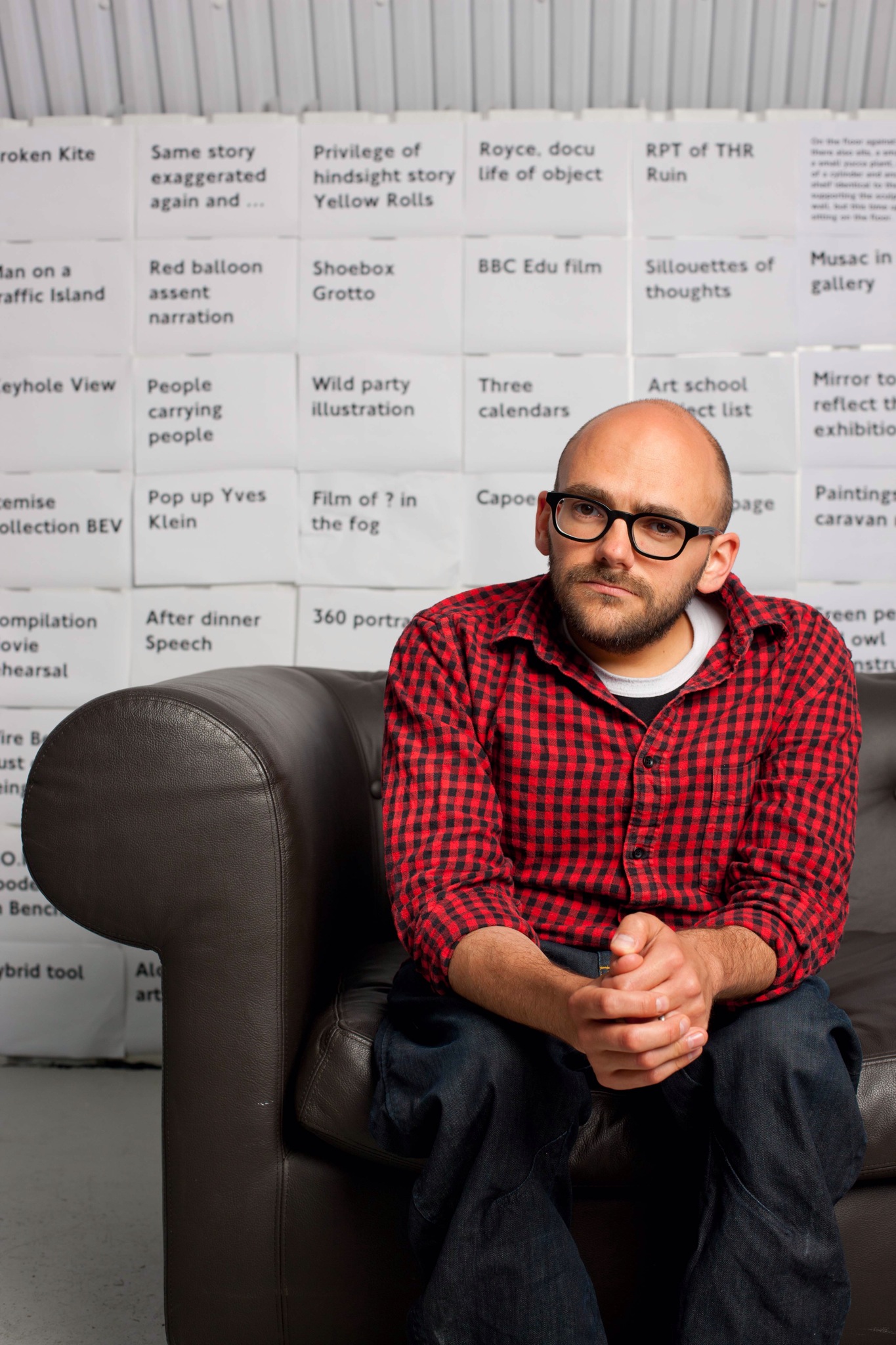
I met up with Ryan Gander at the press view for ‘Make every show like it’s your last’, his exhibition at Manchester art gallery. Ryan studied in Manchester for his undergraduate degree and has produced new work exclusively for this show. After he walked us round his show I was able to grab him for a quick chat.
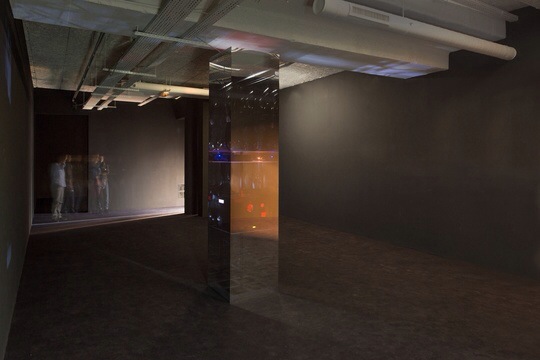
The useless machine with blowing curtain, 2013 photo Martin Argyroglo courtesy the artist and Lisson Gallery
So what’s the big box in the dark space?
It’s the Useless Machine.
It’s like a server?
It’s not a server, It’s called ‘Useless Machine with Blowing Curtains’ that’s what it is.
It’s like an object that has the pretence of being functional.
There’s a counter on it, several fans, there’s light emitting from it, some reel-to-reel technology, some digital technology.
That’s the infrastructure of showing art. It’s an exhibition device that when you go to contemporary art galleries you are aware of and in tune with.
You go into dark spaces in contemporary art galleries and it’s been happening for 20/30 years and there is an architecture, a language that we are all aware of and understand and ignore as we are resilient to it.
And the point of the work is to pull the spectator’s attention to the device of the exhibition, the architecture and language of the dark space.
And also to talk about the futility of function – cost, use, ownership, authorship. All those things you say about an object when you don’t know what it does, who owns it, who made it, how much it’s worth, what its value is – not currency but its greater value to its owner or society.
What do you think about funding of the arts?
Funding of The Arts?
Yes
Depends which bit, what art?
Ok what art needs funding?
I think you can make anything and you can fund it yourself if it is of value to society.
And I’m critical of people who go on residency after residency after residency after residency and use up taxpayer’s money.
Artists should support themselves through their work. If you are not self sustainable after ten years of practice then maybe there’s no use for it. There is a use for some things, not for other things.
And that’s fine. Everybody should make art, it’s a great thing to do. It’s fun and enjoyable and it’s a great thing to be involved in but I’m not sure people need funding that gives them pleasure but doesn’t necessarily enrich anyone else.
The big objective for an artist is to be self sustaining through your practice.
And then through that, the money that you make is put back into art.
Not in some glorified, egocentric patronage but….
I mean, I have just started this thing publishing books by young artists because I think that’s an important and interesting thing to do. And I ran a night school in my studio for a year that was free for anyone that wanted to come. I’m also trying to build an art school. I also buy a lot or work from young artists not always because I want it in my collection but because I know that without that £800 they might not be able to make the next work.
So what’s your publishing project called?
Its not called anything, it’s with Ilaria Marotta and Andrea Baccin from CURA who published my Artists’ Cocktails book that has been really successful, selling out three times in 8 months. So we have decided to take the profit from this project and invest in young artists’ books. I love art books and the publishing of them, there’s not enough art books published.
I also buy my records from Piccadilly records in Manchester on the internet and get them delivered to Suffolk as I couldn’t bear to see it shut down.
So what was it like coming back to Manchester? Working on this exhibition? Has much changed?
It has changed immeasurably. It’s like, I drove in with my friend Freeman who’s from London and he had his phone out with satnav, and I said “Freeman I know this city like the back of my hand put it away, I used to live in that tower block on the left – ”
And there’s no tower block! I got totally lost in 3 minutes. It just doesn’t look like the same place. It’s strange.
It’s funny. When I used to live in Manchester…when I was here there was about ten of us making stuff in the studios then putting half our time into trying to create a scene. Showing in warehouses, galleries, producing art council funded publications.
And I think if you only spend half your time in the studio it’s not a good thing.
I’ve just got back from Glasgow and I realised that Glasgow is different and has a different way of doing it –They don’t try and create a scene. It just happens because everyone is working in their studio 24 hours a day. It’s a kind of selfishness that works.
What I love about Manchester is it is a city that always answers back, and its cheeky like that and the thing I like least about it, is that its only 2 hours from London.
Which kinda makes it too close.
Words: Mark Hayes-Westall
Make every show like it’s your last, on until Sunday 14th September 2014 at Manchester Art Gallery
More to Read: Use your imagineering: Ryan Gander’s art world of pranks and puzzles Adrian Searle The Guardian
More Pictures from Make every show like it’s your last
